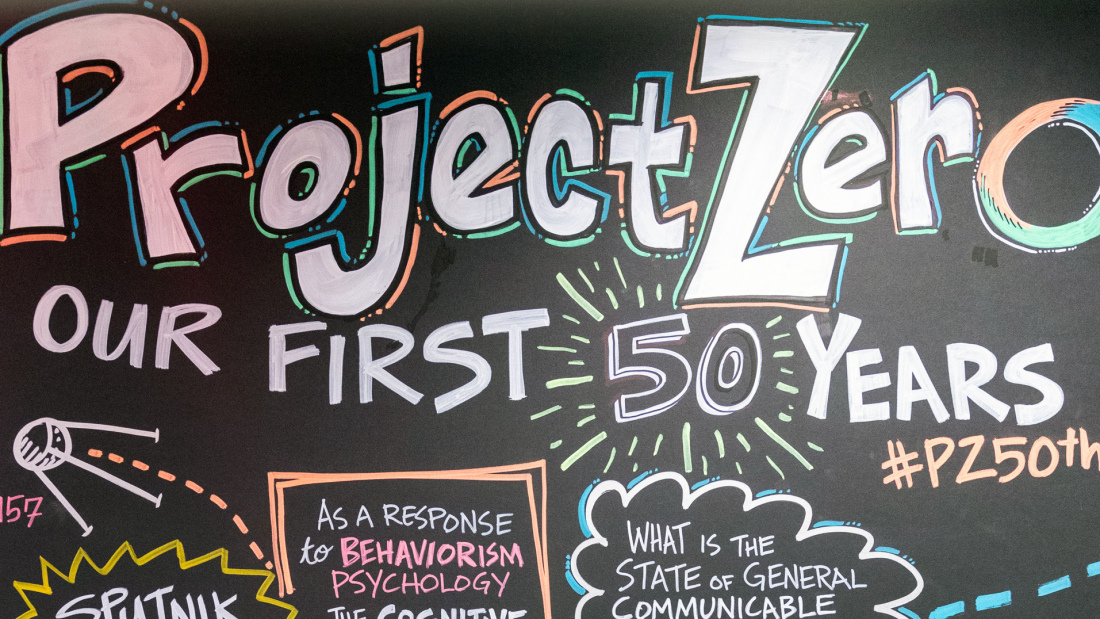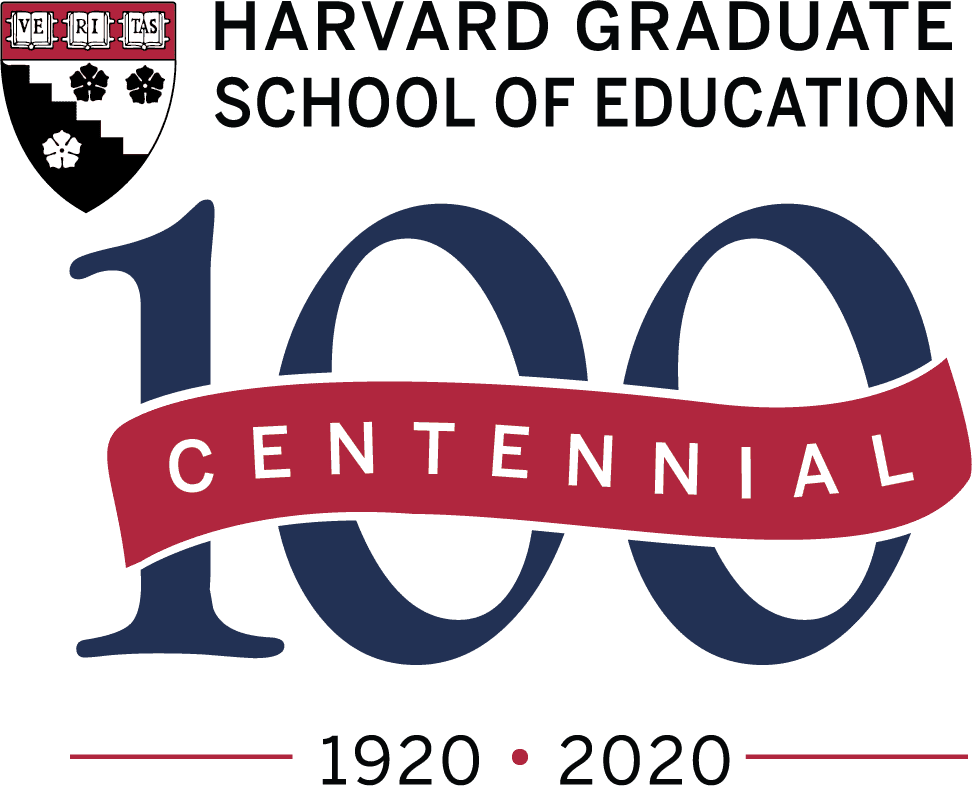A Home Base for Human Potential

In 1967, Harvard philosopher Nelson Goodman conceived a center to study arts learning as seriously as any other academic realm. Fifty years later, Project Zero has become an internationally influential program with a network of thousands of educators and projects that have revolutionized not only the way we think about arts education, but how we think about learning, creativity, and intelligence.
For 50 years, Project Zero has been a constantly evolving center for exploring creativity, learning, intelligence — all that makes us human.
At its inception, there was so little research-backed knowledge about the field of arts education that Goodman decided to call the new center “Project Zero” to reflect how he and his small team of researchers were literally starting from scratch.
Today, the “zero” has taken on a new meaning. “We like to think of Project Zero in which 'zero' means zeroing in and focusing on human potential,” says Daniel Wilson, director of Project Zero. “Learning, creativity — these are what make us human, and our goal is to investigate the nature of how they develop in everyone and how we can create the conditions to reach our best potential.”
Under Goodman in the 1960’s, Project Zero laid the conceptual groundwork for better understanding the nature of learning in and through the arts. In the 1970’s, co-directors David Perkins and Howard Gardner shifted focus to cognitive and developmental psychology. That pioneering research would break with decades of psychological tradition and give birth to the idea that not only are intelligences multiple, they are also learnable.
“If we all had exactly the same kind of mind and there was only one kind of intelligence, then we could teach everybody the same thing in the same way and assess them in the same way and that would be fair,” Gardner has said. “But once we realize that people have very different kinds of minds, different kinds of strengths … then education, which treats everybody the same way, is actually the most unfair education.”
With the publication of the landmark federal report A Nation at Risk in 1983, Project Zero entered a new phase, turning its attention toward education reform and working directly with practitioners in the classroom. A new century brought with it new leadership, first when Steve Seidel took over in 2000, followed by Shari Tishman in 2008 and Wilson in 2014.
Research at Project Zero has continued to look into traditional subject areas like the arts, creativity, and intelligence, but new projects reflect the emerging technologies that have reshaped both the education field and the world. Projects like Agency by Design, which explores the resurgence of the maker movement; Out of Eden Learn, which is discovering new models for cross-cultural inquiry and exchange; and the Pedagogy of Play, a collaborative project with the LEGO Foundation exploring the role of play in school with partner schools in Denmark and South Africa, are all carrying Project Zero into a new decade of groundbreaking research.
“We’ve looked at ethics, but now more and more we’re looking at digital ethics,” says Wilson. “We’ve looked at creativity, but now we’re looking at the influence of different technology and social forces like globalization. We’re continually revisiting these human potentials in an everchanging world.”
Decades of Project Zero research have reshaped our understanding of learning, but also of how teachers teach around the world, thanks in part to a far-reaching professional development initiative. With in-person and online courses, including the popular Project Zero Classroom, more than 4,000 educators each year work alongside Project Zero researchers — and those collaborations continue long after.
“It’s amazing to see how over the years, individual educators have made these relationships that are organized around Project Zero ideas and their commitment to develop potential in their students,” says Wilson. “It’s another kind of impact we’re having, and we’re understanding more and more how we can do work to focus on these networks to help and sustain them.”
Since 2010, Project Zero has also convened conferences in cities around the globe, bringing together educators in Washington, D.C., Spain, and the Netherlands. In 2021, it plans to welcome nearly 600 attendees to Melbourne, Australia.
As Project Zero launches its next 50 years, it will no doubt continue to evolve — as the field of education and our collective challenges evolve. “The future for Project Zero is the same future all educators face: one of uncertainty,” says Wilson. “But the questions that drive our commitment to support the development of others remain the same, and the contexts for human potential are a renewable source for insights.” – Andrew Bauld
Learn More and Connect
Learn more about professional education offerings from Project Zero.
Watch an Askwith Forum on the Pedagogy of Play.
Read about the Project Zero collaboration Reimagining Migration.
